How’s this for a bit of regional synchronicity? This week, a pair of Chinese robotics firms secured $200 million rounds. It’s all part of a booming ecosystem that we get some insight into every so often. There are so many players in China’s robotics space it can be hard to keep track of some of the innovation over there, but these sorts of large funding rounds are a surefire way to make some waves.
The COVID-19 pandemic is anticipated to be a major acceleration point for the country, on the tail of some major manufacturing shortages that brought the world’s supply chains to a standstill. But this week’s pair of big raises point toward an adoption of automation that moves beyond manufacturing.
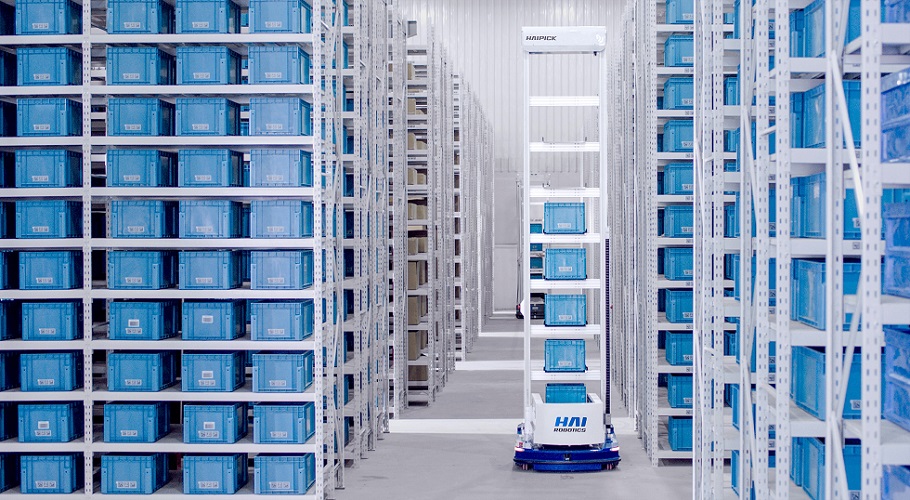
Image Credits: Hai Robotics
Hai Robotics grabbed the bigger headlines of the two with the announcement of a joint Series C and D that amount to $200 million. The company’s Shenzhen location puts it smack in the heart of China’s manufacturing zone, but the company’s specialty is warehouse/fulfillment robotics. It already has a decent-sized international footprint with deployment in 30 countries, including a recent deal with Booktopia, a large Australian online book retailer.
5Y Capital and Capital Today led the C and D, respectively. The rounds also featured Sequoia Capital China, Source Code Capital, VMS, Walden International and Scheme Capital. The funding will be used to further Hai’s international expansion and build out its existing presence in China.

Image Credits: Bryce Durbin/TechCrunch
Don’t forget to sign up to get the upcoming free newsletter version of Actuator delivered to your inbox.
Keenon Robotics’ $200 million Series D flew under the radar a bit. The round was led by SoftBank Vision Fund 2, with participation from CICC ALPHA and Prosperity7 Ventures. The company specializes in service robots — not dissimilar from the sorts of robo-waiters we’ve seen from California-based Bear Robots. It’s a sizable industry on its own, though the company has already begun expanding its use cases, including hotels and hospitals.
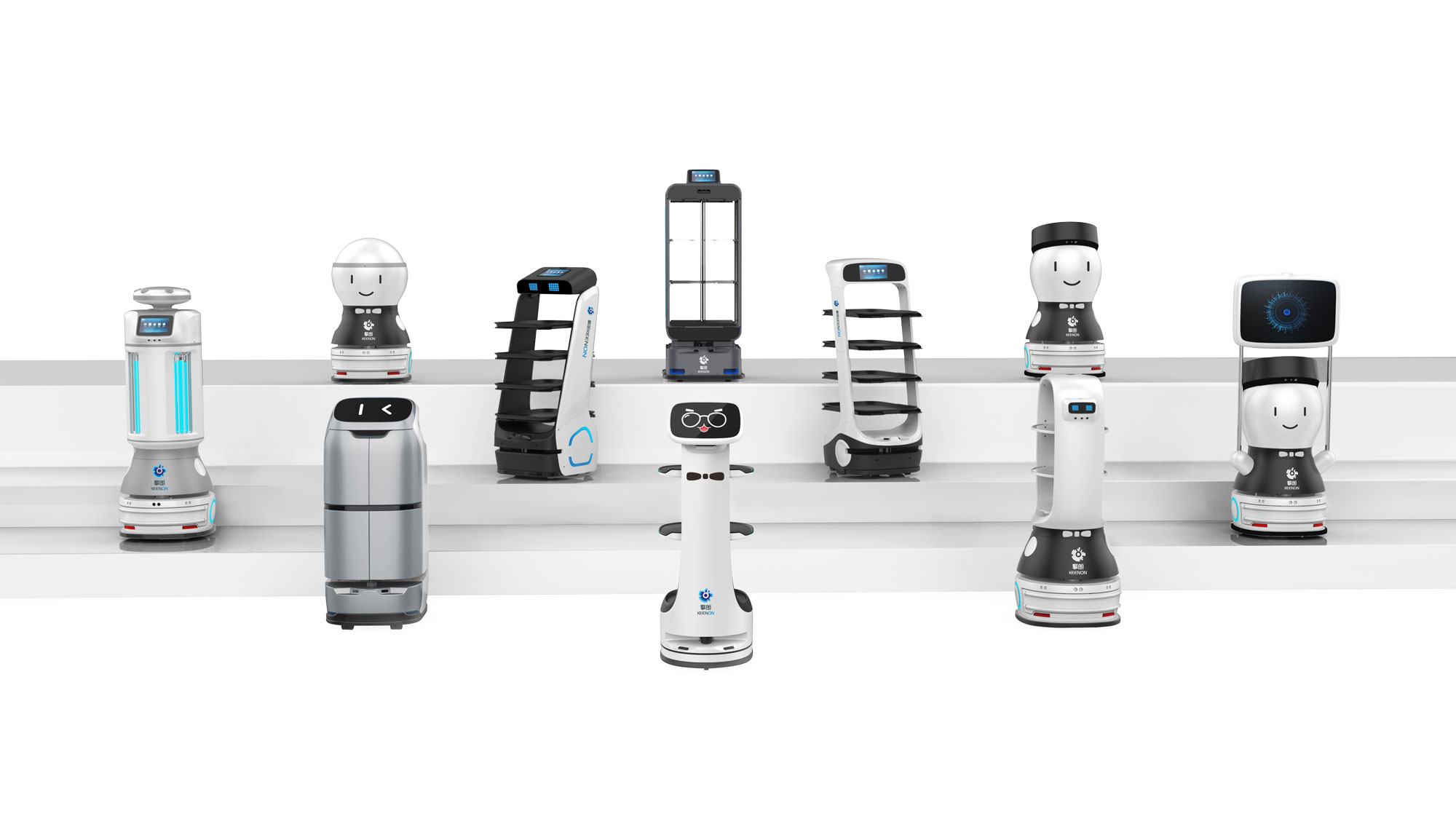
Image Credits: Keenon Robotics
Keenon says its robots have been deployed in the U.S., Europe, South Korea and Singapore, and the funding will go toward further expanding that footprint.
“We believe robotic solutions can have a profound impact across the services industry by assisting with repetitive, tedious workflows,” SoftBank’s Kentaro Matsui said in a release. “Using AI and machine learning, combined with advanced manufacturing capabilities, Keenon is building innovative robotics to help increase productivity for restaurants, hotels, and hospitals in China and globally.”
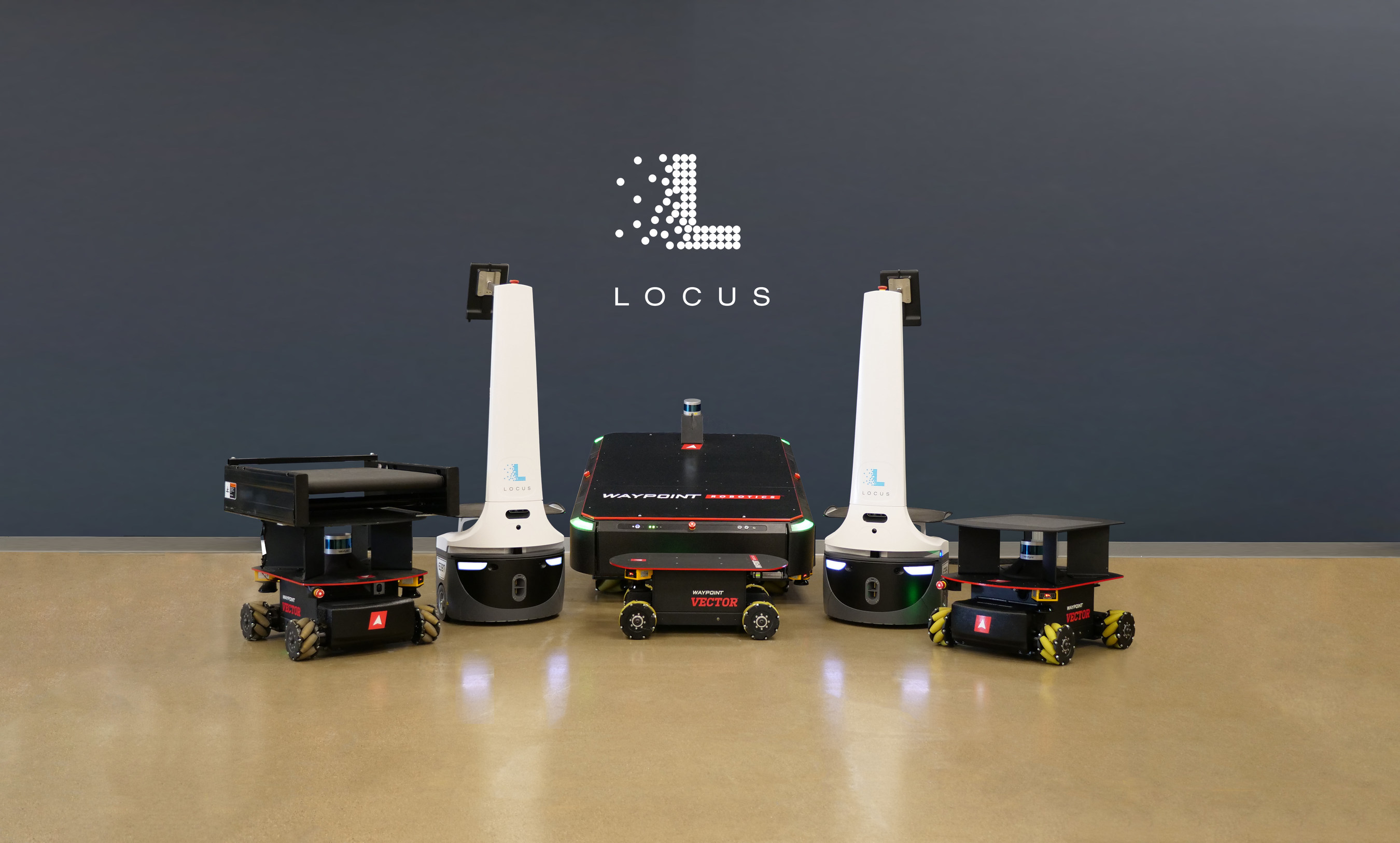
Locus Robotics acquires Waypoint Robotics. Image Credits: Locus Robotics
Newly flush with cash, Locus Robotics (which seems to make its way into this roundup more often than not), has agreed to acquire Waypoint Robotics. Waypoint more or less operates in the same warehouse category as Locus. Its flagship product is Vector, an autonomous omnidirectional robot capable of moving around up to a 300-pound payload.
“Locus is the proven leader in the development of highly productive and innovative AMR technology that efficiently solves our customers’ needs for total warehouse optimization,” Locus CEO Rick Faulk said in a release. “As order fulfillment and labor shortages continue to grow around the world, the acquisition of Waypoint Robotics will accelerate our ability to meet these global needs in just months rather than years, helping us drive the digital transformation of the warehouse.”
Locus announced a $150 million Series E in February and an additional $50 million this month. The company is clearly looking to build a robust fulfillment ecosystem it hopes can probably compete with Amazon’s offering.
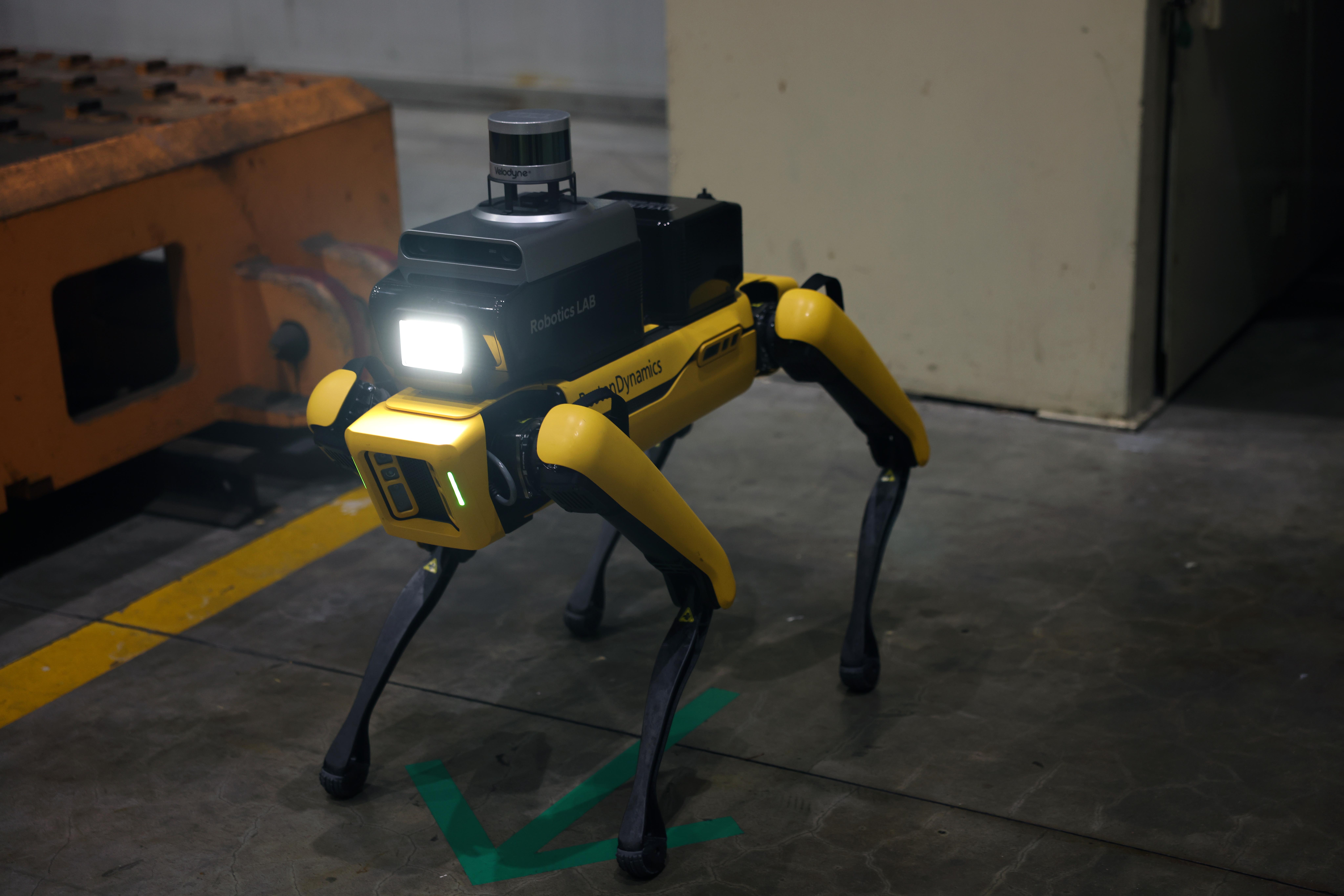
The first fruits of Boston Dynamics’ acquisition by Hyundai are finally arriving. The drably-named “Factory Safety Service Robot” is effectively a bespoke Spot robot designed to patrol factories, starting with a pilot at the Hyundai-owned Kia Plant in Seoul. The robot comes equipped with lidar and a thermal camera and can patrol the factory floor autonomously or be controlled remotely through a browser.

Image Credits: Nvidia
This week, Nvidia and Open Robotics announced a partnership that looks to be beneficial for both parties. Essentially, the agreement is designed to make Nvidia’s Jetson development platform and Open Robotics’ ROS 2 software work together. The deal is designed to speed up development time for roboticists using Nvidia’s perception technology.
“As more ROS developers leverage hardware platforms that contain additional compute capabilities designed to offload the host CPU, ROS is evolving to make it easier to efficiently take advantage of these advanced hardware resources,” Open Robotics CEO Brian Gerkey said in a release. “Working with an accelerated computing leader like NVIDIA and its vast experience in AI and robotics innovation will bring significant benefits to the entire ROS community.”
And hey, happy Disrupt week! Shout-out to RoboDeck, the deck maintenance robot. The company is competing in this week’s Startup Battlefield with a product they assure us is more than just “Roomba, but for resealing your deck” (to quote Greg’s piece). The system applies sealant and uses built-in mapping technology to determine the edges of the surface to avoid falling off.
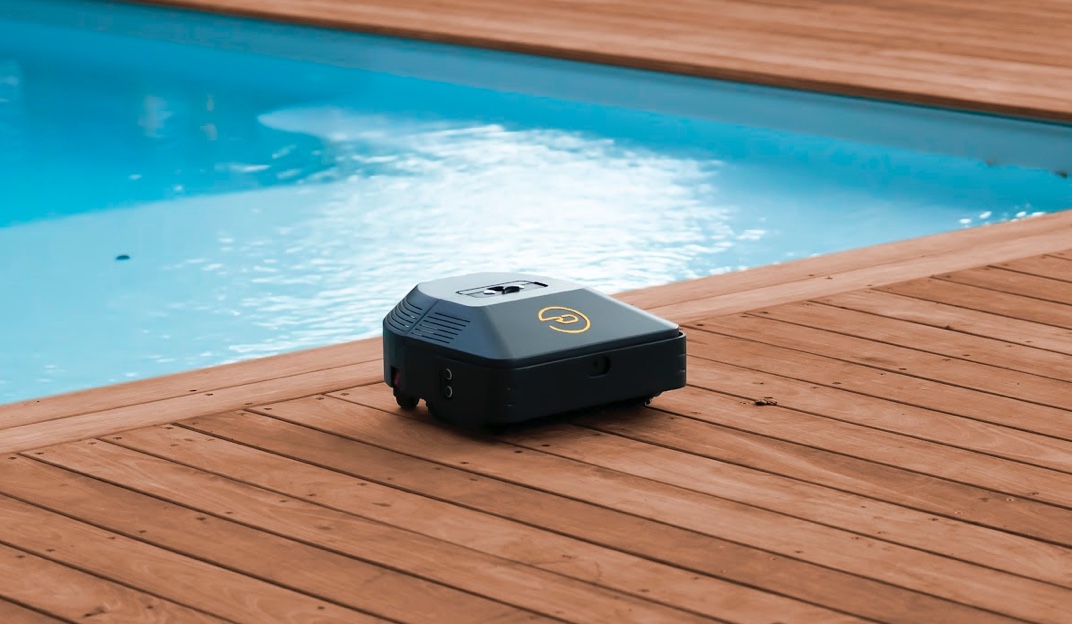
Image Credits: RoboDeck
The company has a prototype at the moment, capable of handling 500 square feet of deck in a charge. RoboDeck plans to offer the devices as an RaaS rental model when it comes to market. The company has thus far raised $500,000, with most of the funding coming from SOSV.
Source Link Attack of the $200M robotic raises
Leave a Reply